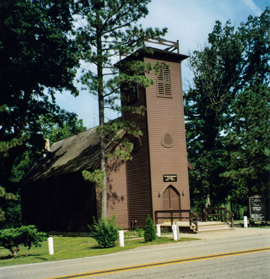Being Blessed By All The Fiction Crazy
None of us deserve great stories, mainly because we’re sinners. Yet God gives them.
In last week’s column, I expressed latent frustration with “all the fiction crazy.” My worst-day criticisms remain. I define “fiction crazy” not as any kind of honest fiction fandom — which would be better — but instead as ignoring great stories, or pushing subpar stories and calling them great, or justifying poor or even un-Biblical stories as “evangelism tools.”1 Some of God’s people honestly call fiction frivolous, or worse, suggest that it’s equivalent to lying.
But that doesn’t discount the gift. Even the craziest of us can be God’s own people, so long as we repent to, believe in, and reflect the true Jesus. Even when we fail, God is crazy generous, blessing us with far more than bonus benefits.
“He who did not spare his own Son but gave him up for us all, how will he not also with him graciously give us all things?” (Rom. 8:32)
God gives every good gift (James 1:17) only to the undeserving. Like with rain or sun (Matt. 5:45), He gives stories and imagination to His people and the unrighteous alike. Stories and imagination reflect His character, with this chief difference: God is the Master Storyteller, solely privileged to make His imaginations become reality.
Stories’ threefold blessings
I can’t speak for you, but I can speak for how God uses great stories to bless me. And to describe how, I’ll borrow a format from systematic theology books. Many of those roughly structure their explorations of God’s Word according to (1) God, (2) man, (3) the world.
1. Stories help us worship the true God.
This is a blessing on which I often focus to the exclusion of the other two. Somehow I find it groundbreaking: If all of life is worship (of which local-church worship remains set apart and special), then reading stories is worship. And in experiencing stories, so long as we do this without personal sin, we are glorifying God as if we were singing or hearing a sermon.
Suddenly it seems more Christians are uncertain about images of Jesus Christ in a film like Son of God, based on the (in)famous The Bible History Channel miniseries. They feel these images violate the Second Commandment in Exodus 20: 4–5. Some make good points — though I’m unsure how an image of Jesus Christ, Himself the visible Image of invisible God (Col. 1:15), relates to the command not to make an image of God specifically to worship.
Perhaps the image-critics’ best argument would be to say that no human image “of Jesus” could come close to representing even the human image of Jesus. I would agree with that, if we are talking about “seeing” Jesus in a movie. Those have never quite helped me worship the real Jesus Christ better, any more than they’ve tempted me to worship the image.
But what about “images of” Jesus Christ in fiction — a human hero, a majestic not-tame Lion, even a miracle/magic-working wizard? Again, I can’t speak for you, but for my part these figures only make me want to know and praise the real Jesus Christ. That’s worship.
2. Stories help us relate to other people.
Fandoms. Real community. Shared love of God’s Story and shared love of other stories, especially fantastic stories. All of that makes for great friendships and relationships in the wide, wonderful, crazy family/Kingdom of God. Even if I was fuzzier on the worship-of-God concept, this would be enough blessing: if stories help pull people together around the ultimate Hero, across the distances and denominations and minor doctrinal differences.
3. Stories help us shine light in the world.
Whether your favorite story is made by a Christian or non-Christian, this much they have in common: at best they only rearrange or invert parts of God’s Story. Even our “Christ-figure” heroes can only be “Christ-figure-figure” heroes, reflecting us when we best reflect the real Christ. Our heroes are copies of copies, the copies are us, and we should copy Christ.
 This gives the Christian a huge — though one would hope humbly used — advantage.
This gives the Christian a huge — though one would hope humbly used — advantage.
We can both use stories to shine light into the world, and find pockets of light already there.
Example: a fan of Supernatural may be bent toward mystical pursuits for their own ends. Yet he/she is also vulnerable to a premise of that show’s title: that there’s more to life than what we see. From where did that idea come from? The real world. And the real world is a “God-ward” world. It’s not yet “Christian,” but the real world shows God enough so that He can rightly condemn people who rejected that revelation; they’ll have no excuse (Rom. 1).
This also makes me wonder if God will count good stories in the world as further evidence if we reject Him. Could He rightly say, “You loved that story about that good hero and never even tried to find the Source”? Could He justifiably count our own fandoms against us?
If I ended on that low note, it would be two weeks too many. For God’s people, stories show us darkness and light — and not only in black and white, but a glorious spectrum of color. God did not need to give us things like color, amazing animals, and stories. But He did.
- Perhaps like this well-meaning person suggests we do with the Noah film. ↩








































Tolkien’s story “Leaf by Niggle” really speaks to creativity being a gift, both to the creator and to others. I read it for the first time last night; I don’t know why I hadn’t read it previous times when I’ve held a library copy of Tree and Leaf.
It moved me to tears when Niggle finds his unfinished and unappreciated masterpiece complete and real in Heaven/Purgatory, and declares, “It’s a gift!” A gift to Niggle from God, a gift from Niggle back to God.
That story is a wonderful reminder of the mystery and glory of sub-creation.
And with a great gift comes a great responsibility.
Well put, Stephen.
Fantastic post. I thank God every day for the creative gift He gave me. My greatest desire is that my stories will lift peoples’ hearts and turn them toward Him.